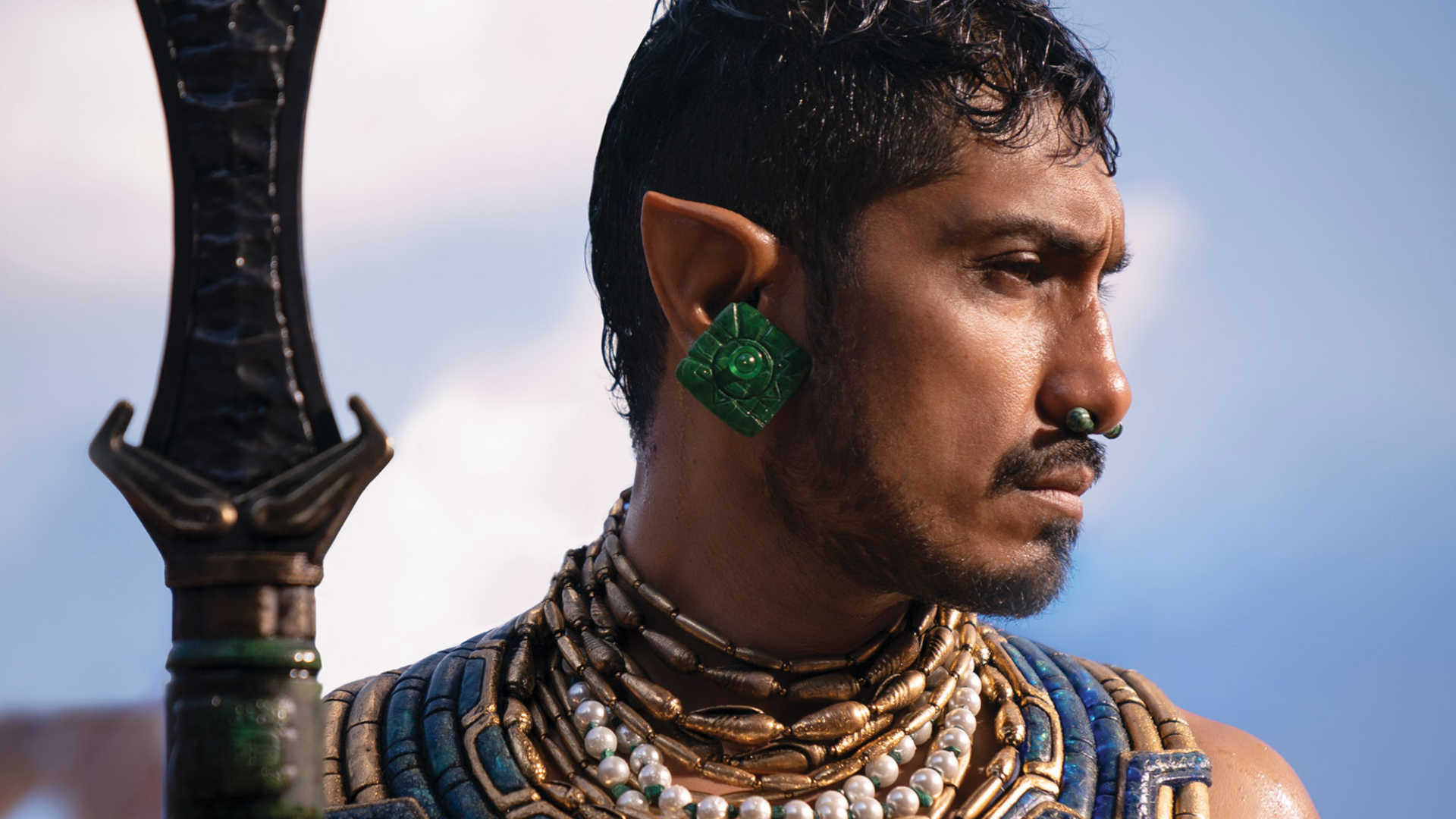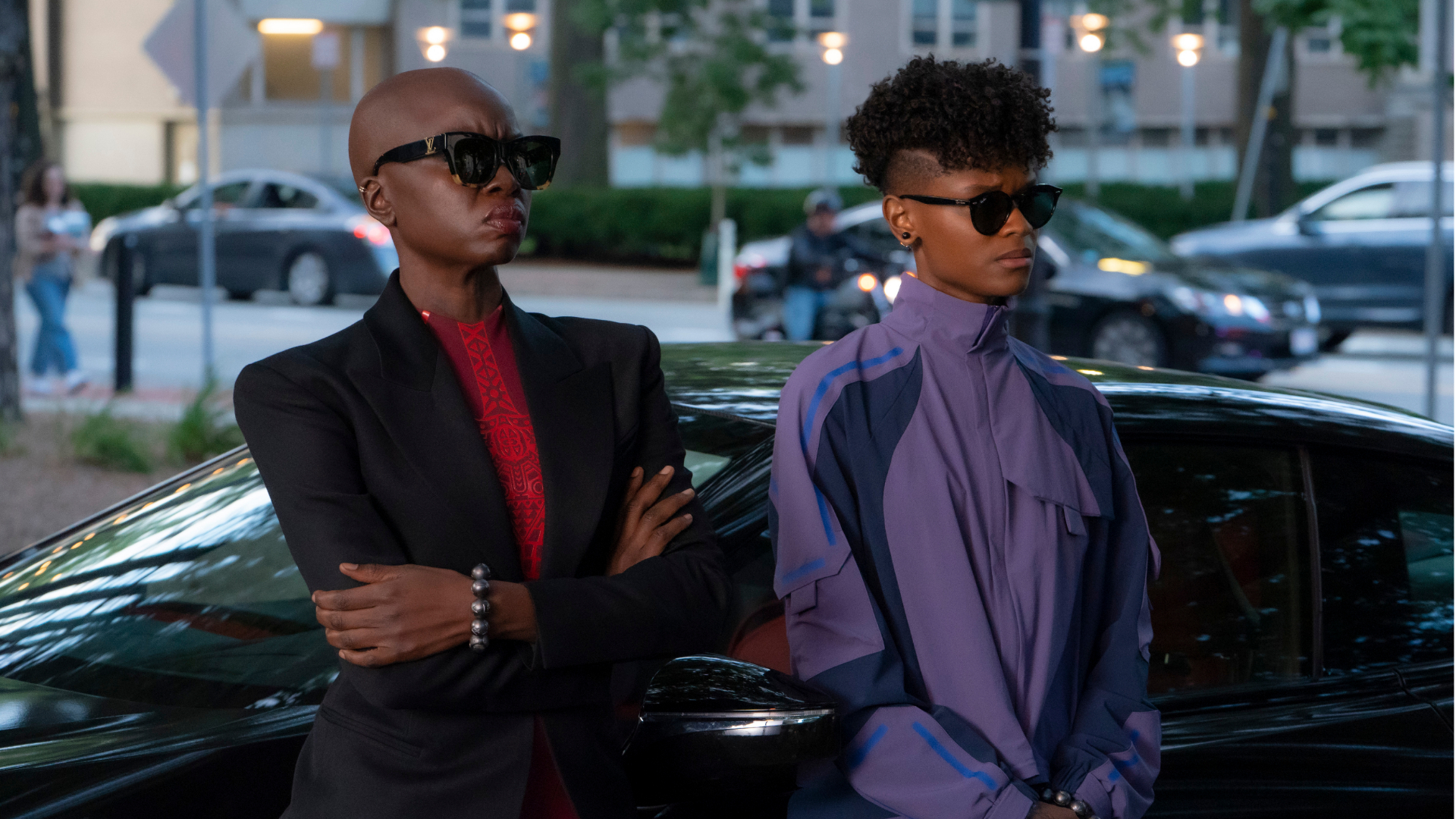GamesRadar+ Verdict
Between a fallen king and a rising threat, Marvel’s cinematic Phase 4 ends on a tender and – mostly - triumphant high.
Why you can trust GamesRadar+
"I couldn’t just keep going as if nothing had happened," someone declares halfway through Black Panther: Wakanda Forever, the sequel to Marvel’s Black Panther. Rest assured: after the devastating loss of Chadwick Boseman in 2020, director Ryan Coogler has no intention of acting as if nothing had happened.
Between its Marvel Cinematic Universe-building, world-threatening narrative, spectacular dust-ups, and blistering nemesis, Black Panther: Wakanda Forever is seared by a sense of loss. From beginning to end, Coogler honors the legacies of Boseman and T’Challa with depth and love, sensitivity, and dignity. Even if this bold, fully felt follow-up stumbles slightly over its workload elsewhere, it rises to its toughest challenge with care and hits hard where it needs to.
T’Challa’s loss happens upfront; a memorial follows, doubling as a heart-in-mouth tribute to Boseman (the Marvel Studios logo also pays its respects). One year later, the effects of T’Challa’s reign and passing resonate. At the United Nations, Queen Ramonda (Angela Bassett) answers accusations that Wakanda has withheld vibranium with a stinging riposte. It turns out some nations have tried to take advantage of Wakanda’s perceived power vacuum by attempting to steal vibranium. Yet while Ramonda is not to be messed with, she offers an olive branch to other nations, if they behave.
Meanwhile, another leader surfaces, with no interest in grief or peace. Namor (Tenoch Huerta) of 'Sub-Mariner' fame believes the surface world’s greed for vibranium endangers his people. When a US military team uses a device designed by teen prodigy Riri Williams (Dominique Thorne) to locate the ore undersea, the hunters are swiftly, furiously dispatched by Namor’s warriors. As for Wakanda, Namor requests – no, demands – that Ramonda fight with him against the upper world. And she can start by finding Riri.
This set-up provides knotty political tensions and a complex set of characters to navigate. And Coogler digs in deep. Huerta makes for a terrific anti-hero and nemesis, seductive and sympathetic (until he isn’t) but imposing, and his people’s ocean attack – heralded by eerie siren song – is nightmarish. They certainly make quite the entrance: always bring a whale to a punch-up.

The wondrous dive to the underwater city of Talokan is better still. Forget Aquaman’s gaudy dazzle and octo-drummers: Coogler’s Talokan is designed to give a tangible sense of what’s at stake for its ruler. As Coogler and co-writer Joe Robert Cole give the film’s Mesoamerican nemesis a gutting, real-world backstory to match, Namor emerges as a complicated, worthy follow-up to Killmonger, fiercely protective of his people.
While Thorne brings fun and likeability to Riri, Ironheart’s debut doesn’t have quite the same impact. If Spidey’s Civil War landing was a model of how to introduce a young hero, Riri’s recruitment – a comedic bedroom scene recalls Peter Parker’s Stark encounter – seems a little rushed. The upcoming Disney Plus series will surely flesh her out more but she lands awkwardly here, already several stops down the road in her origin story.
Recalling Black Panther’s car chase, Riri’s initial rescue also reflects Wakanda Forever’s faint tendency to parrot its predecessors. Later, a character’s tormented desire for retribution recalls T’Challa’s Civil War mission. Martin Freeman’s appearances are also a little awkward: while Coogler gives Ross and his spoilery ex an intriguing arc and an amusingly lewd Peloton gag, they’re off-screen too often to generate sufficient interest. Michaela Coel’s promising Aneka is likewise underused, albeit well-planted for future nurturing.

Happily, that’s not the case with Namor’s maneuvers. A mid-film conflict summons all the shock and awe at Marvel’s disposal, with Namor’s feather-footed powers fully flexed. Shock twists, cameos, and character developments follow, with the big question – who wears the Panther suit? – one of many secrets (and suits) in Coogler’s armory.
Winston Duke’s winning M’Baku, Lupita Nyong’o’s gone-missing Nakia, Gurira’s rebellious Okoye, Bassett’s powerhouse queen, and Letitia Wright’s agonized Shuri add steadying character constants and variably surprising arcs. And the absence of divisive multiverse shenanigans helps keep proceedings tight. Even if the action does turn crowded towards the climax, there’s plenty to grip, thrill, and keep you claw-sharp, from Ludwig Göransson’s extravagantly full-bodied score to a wet 'n' wild ocean ruckus.
Is the latter a saltwater-scented gauntlet, slapped down to another incoming, well-hydrated sequel involving blue folks? Either way, James Cameron’s claim that Marvel never confronts the things that ground us doesn’t really hold water next to either Panther movie. As the closing scene approaches, Coogler holds the losses of Boseman and T’Challa close. Even if the requirements of an MCU tentpole weigh a little heavy elsewhere, Wakanda Forever nonetheless finally finds the much-needed room for reflection. When the time for tears comes, this ambitious, heartfelt blockbuster makes sure you feel it.
Black Panther: Wakanda Forever is in cinemas from November 11. For more, check out all the upcoming Marvel movies and shows to look out for.
More info
| Genre | Superhero |
Kevin Harley is a freelance journalist with bylines at Total Film, Radio Times, The List, and others, specializing in film and music coverage. He can most commonly be found writing movie reviews and previews at GamesRadar+.


